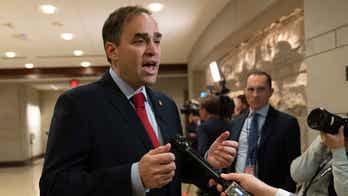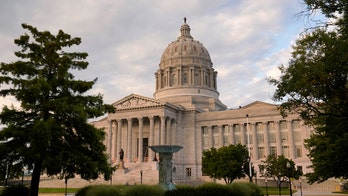WASHINGTON -- The recent capture of the Taliban's No. 2 is a big score for the Obama administration in the war on terror, but so far, the White House has said little about how Mullah Abdul Ghani Baradar was captured, where he is being held and what intelligence, if any, he is providing.
All that is known is that Baradar was apprehended in Karachi by a joint CIA-Pakistani operation and that he "was talking," one Pakistani officer told The Associated Press on condition of anonymity.
"This involves very sensitive intelligence matters," White House Press Secretary Robert Gibbs said. "This involves the collection of intelligence, and it is best to do that and not to necessarily talk about it."
Baradar is being held in Pakistan by local authorities for the time being, but other options have been somewhat limited by new NATO rules -- and by President Obama's own policies.
In January 2009, Obama issued an executive order banning so-called "black sites," classified locations where CIA and overseas security officials interrogated terrorists, and another executive order calling for the closure of the detention facility at Guantanamo Bay, Cuba.
The rules have changed for holding detainees on the battlefield, as well. Last summer, NATO instituted a 96-hour rule, which says that if any NATO or International Security Assistance Force soldiers, including Americans, can't transfer captured terrorists or enemy combatants to the Afghan justice system within 96 hours, they have to be released.
"It is a big limitation," a senior official in Afghanistan told Fox News at the time of the rule change. "Not being able to detain individuals to conduct interrogations ... is very restrictive, something that we didn't have to worry about in Iraq."
There are some exceptions to that rule. If a wanted terrorist is picked up by a U.S. Special Forces unit working under the confines of Operation Enduring Freedom, rather than NATO, that prisoner would be sent to a detention facility at Bagram Air Base, where U.S. interrogators would be free to question him within the guidelines of the Army Field Manual.
The hope is that high-value targets are picked up by elite U.S. units and not by NATO, but that exception may not last. A military official in the Pentagon told Fox Tuesday, "we are looking at that policy to see of it's a good idea."
Secretary of Defense Robert Gates and Attorney General Eric Holder also are conducting a long overdue Detainee Policy Review, which President Obama ordered at the same time he called for Guantanamo to be closed.
The role of Pakistan also raises concerns. Pakistan's intelligence agency, the ISI, is known to have kept close contacts with members of the Taliban -- leading some to speculate that Bandar could disappear just as quickly as he appeared. Meanwhile, Baradar's capture came just days after Pakistan announced it would like to have a larger role in the future of Afghanistan by offering to help with Afghan Taliban reconciliation efforts.
The Obama administration so far has shown a preference for taking terror targets out by drone attacks. CIA-operated drone strikes have become particularly frequent in Pakistan. And in September, Fox News reported the details of a presidentially approved Navy Seals strike in Southern Somalia that killed Saleh Ali Saleh Nabhan, one of four co-conspirators wanted in the 2002 bombing of an Israel-owned hotel in Mombasa, Kenya. In that instance, there was no effort to take Nabhan alive.
Baradar was taken alive, but Gibbs on Tuesday described reports on the capture as "not helpful."




